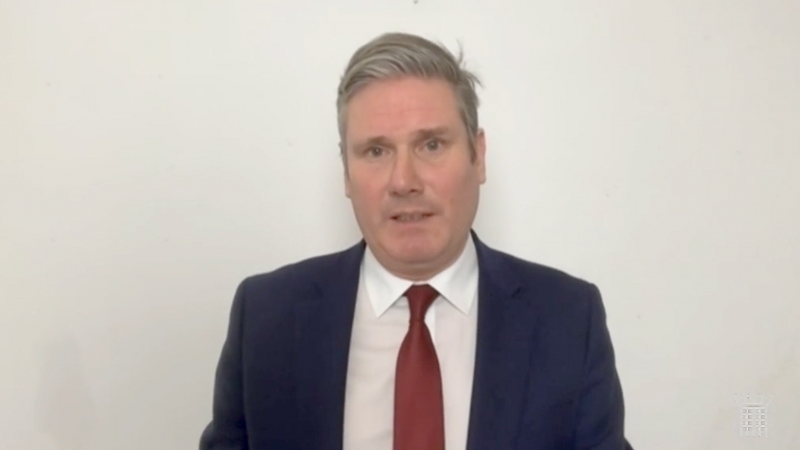
Keir Starmer went virtual at Prime Minister’s Questions this week. He is self-isolating and – instead of deputy Angela Rayner stepping up as she did last time – he arranged a video link. That was the first big difference. The other was that Starmer has consistently chosen to grill Boris Johnson on coronavirus at PMQs, opting for the government’s handling of the pandemic as his main topic every week for the last ten weeks by my count. But with Covid-19 news currently dominated by the happy arrival of approved vaccines and the start of a roll-out that some doubted would ever come, the Labour leader changed course.
Brexit was the focus of the session this afternoon, which came ahead of the Prime Minister travelling to Brussels for dinner with Ursula von der Leyen at 7pm. This is a tricky subject for the opposition leader, who came to be seen by many as Labour’s ‘Remainer-in-chief’ and now needs to win back Leave voters in the so-called ‘Red Wall’, but he will have hoped today that it was an even trickier one for the PM. And, with the possibility of no deal looming, Johnson did not seem comfortable: he quickly deflected, as Starmer pointed out, by making a ridiculous jibe about the opposition dialling in from Islington. This is both factually incorrect, as Starmer lives in the borough of Camden, and very silly particularly because it is Johnson who sold an Islington home only last year.
Starmer highlighted the issues of trustworthiness and incompetence, which have become touchstones of his attacks as opposition leader. The first measure is affected by the chances of no deal previously being described as “zero” and the promise of an “oven-ready” deal, he argued. (Labour is making a safe bet that voters do not care about whether the Tories were referring to the withdrawal agreement or the trade deal when using this phrase last year.) The second measure is affected by the prospect of no deal itself, which would be a “total failure” and see British people “pay the price”, the Labour leader said.
The opposition leader was vulnerable to attacks from Johnson on how Labour plans to vote on a deal. He maintained the line that he could not reveal whipping arrangements ahead of a deal being agreed, but said: “If there is a deal, and I hope there’s a deal, then my party will vote in the national interest not on party political lines as he is doing.” The “national interest” framing does not necessarily mean Labour will vote in favour: the same line was used when the party recently abstained on coronavirus rules, after all. We know that the leadership is inclined towards a vote for a deal, however. The next question is whether Starmer can show the country that his party is listening while also limiting the number of resignations that risk sending the opposite message and losing talent from the frontbench.




More from LabourList
‘Labour is being badly misled on housing’
Reeves bets on patience over populism
‘Energy efficiency changes must work for older private renters’